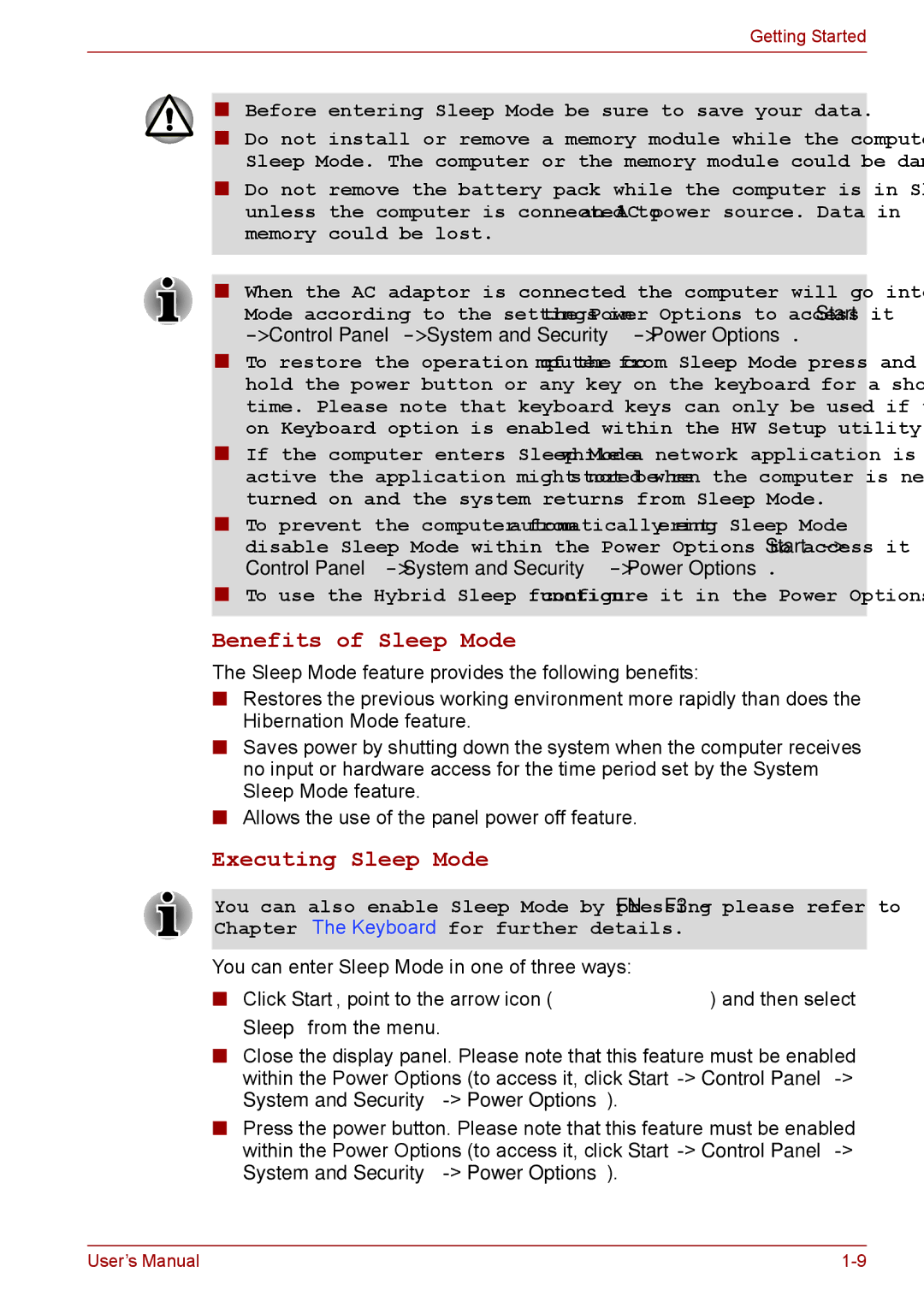
Getting Started
■Before entering Sleep Mode, be sure to save your data.
■Do not install or remove a memory module while the computer is in Sleep Mode. The computer or the memory module could be damaged.
■Do not remove the battery pack while the computer is in Sleep Mode (unless the computer is connected to an AC power source). Data in memory could be lost.
■When the AC adaptor is connected, the computer will go into Sleep Mode according to the settings in the Power Options (to access it, Start
■To restore the operation of the computer from Sleep Mode, press and hold the power button or any key on the keyboard for a short amount of time. Please note that keyboard keys can only be used if the
■If the computer enters Sleep Mode while a network application is active, the application might not be restored when the computer is next turned on and the system returns from Sleep Mode.
■To prevent the computer from automatically entering Sleep Mode, disable Sleep Mode within the Power Options (to access it, Start
■To use the Hybrid Sleep function, configure it in the Power Options.
Benefits of Sleep Mode
The Sleep Mode feature provides the following benefits:
■Restores the previous working environment more rapidly than does the Hibernation Mode feature.
■Saves power by shutting down the system when the computer receives no input or hardware access for the time period set by the System Sleep Mode feature.
■Allows the use of the panel power off feature.
Executing Sleep Mode
You can also enable Sleep Mode by pressing FN + F3 - please refer to Chapter 5, The Keyboard, for further details.
You can enter Sleep Mode in one of three ways:
■ Click Start, point to the arrow icon ( | ) and then select |
Sleep from the menu.
■Close the display panel. Please note that this feature must be enabled within the Power Options (to access it, click Start
■Press the power button. Please note that this feature must be enabled within the Power Options (to access it, click Start
User’s Manual |
